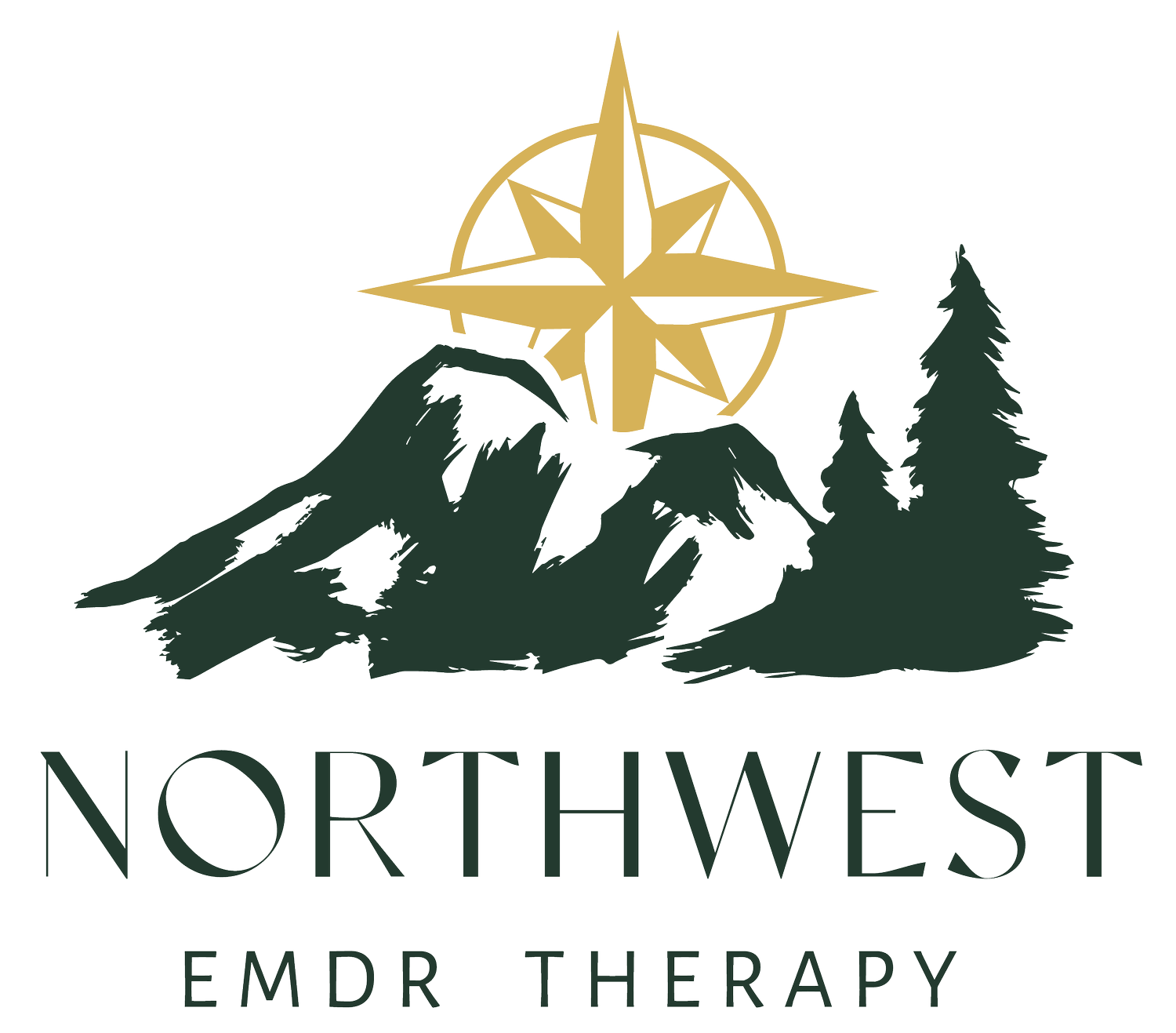EMDR Therapy for Depression
At Northwest EMDR Therapy, we understand the importance of adapting to our patient’s needs. We offer many traditional kinds of therapy and techniques until you discover your power and confidence within the healing process. Among the various methods we use is Eye Movement Desensitization and Reprocessing, otherwise known as EMDR Therapy. EMDR is an established and proven technique to help individuals better process traumatic experiences and memories that have been the cause of mental health conditions such as depression. Specifically, using EMDR therapy for depression has shown to be beneficial as both a long-term and short-term therapy.

Understanding Depression
Depression isn’t a mental disorder that fits in a neat little box with a simple definition. In today’s world, depression is one of the most common mental disorders in the world- affecting thousands of people in severity and symptoms. Depressive episodes can make an individual feel hopeless, abandoned, overwhelmed, or empty. It often results in lacking self-worth or difficulty finding joy in life’s activities. This can make it hard for individuals suffering from depression to create connections with others or find they have little to no energy for even the simplest of tasks.
These depressive symptoms can often be triggered by unresolved trauma and stressful life events. When these sad or difficult moments are not dealt with healthily or properly, they can leave scars on our mental, emotional, and physical health. Striving to understand the underlying causes of depression is crucial to help your body begin its healing process.



What is EMDR?
Eye Movement Desensitization and Reprocessing (EMDR) is a compassionate and effective therapy technique, primarily used to heal the psychological distress arising from traumatic memories. In EMDR sessions, a trained therapist gently guides eye movements or other forms of bilateral stimulation, facilitating the processing of distressing memories. This method has been especially transformative for those experiencing trauma, anxiety, depression, and PTSD.
EMDR stands out for its efficiency, often bringing relief more quickly than traditional therapy methods. It offers a nurturing space where individuals can work through and resolve deep-seated trauma, fostering a journey towards greater mental well-being and resilience. With EMDR, the goal is to transform the lingering effects of past traumas into a source of strength, empowering individuals on their path to recovery.
Is EMDR Effective in Treating Depression?
Depression often paints a distressing picture in the mind, fostering feelings of worthlessness and a lack of self-compassion. EMDR therapy steps in as a transformative process, not just alleviating these negative beliefs but also linking depression to any unresolved traumatic experiences. This therapeutic approach allows individuals to confront and manage their traumatic events in a controlled and safe environment, gradually replacing negative thoughts tied to stressful experiences with positive beliefs.
EMDR’s efficacy extends beyond its well-known applications in treating Post-Traumatic Stress Disorder (PTSD). Recent studies have illuminated its effectiveness in addressing major depressive disorder (MDD), reactive depression, post-partum depression, and seasonal affective disorder, particularly in cases arising from childhood trauma or emotional abuse. Through clinical trials, EMDR has demonstrated significant improvements in patients’ quality of life. It helps maintain long-term effectiveness in achieving depression-free outcomes by tackling both the symptoms and the underlying causes of depression.
In essence, EMDR therapy offers more than a mere coping mechanism for depression. It provides a pathway to understand, reframe, and ultimately overcome the deep-rooted causes of depressive states, fostering a journey towards healing and self-compassion.


The EMDR Therapy Process
So how does EMDR therapy work for depression? EMDR is an eight-phase psychotherapy approach where an EMDR therapist helps you link your depression to traumatic, unresolved events that strengthen your negative beliefs. When you are ready to start processing a specific event, the therapist will begin asking questions about your thoughts, feelings, and body sensations. As you start reprocessing the event, you will follow movement with your eyes that alleviates the stress of thinking about the unresolved trauma. This environment desensitizes the mind, and you can examine your thoughts, responses, and emotions without judging or trying to change them.
EMDR Therapy allows you to face these painful memories in a low-stress, safe environment. By accepting these responses for what they are, you are then able to become more at peace with the event and how it has impacted you as a person. Then, the therapist can help you replace these negative assumptions your mind has made and replace them with alternative, positive beliefs. At the end of each session, the EMDR therapist will help you return and pause the work until the next session.
Who Should Not Do EMDR Therapy?
While EMDR is a promising therapy for many, it’s not universally suitable. Individuals with certain types of mental health conditions, such as severe dissociative disorders, might not be ideal candidates. A thorough initial assessment is crucial to determine EMDR’s appropriateness, ensuring the safety and effectiveness of the treatment.
What Are the Negative Side Effects of EMDR Therapy?
EMDR therapy, like any psychological treatment, can have side effects. Some patients might experience heightened awareness of emotions or physical sensations, temporary increases in distress, or vivid dreams. These reactions are typically part of the healing process, as EMDR aims to reprocess traumatic memories.
Does EMDR Work for Depression:
Discover How EMDR Can Change Your Life
Transformations have been made through the use of EMDR therapy. Instead of allowing painful memories to define us, EMDR therapy can give you the power to accept yourself and heal from the trauma. Many patients said EMDR helped them overcome their negative thoughts and memories.
Not only does EMDR help give you the confidence to process your trauma, but it also gives you the tools to stop yourself from slipping into a depressive state in the future. Continuous thoughts of, “I am a weakling; I can’t do anything right,” can be replaced with thoughts of encouragement and self-love.
EMDR therapists are highly trained to provide the treatment you require. Because EMDR therapy deals with sensitive issues, it’s essential to communicate any triggers, needs, or hopes you might have so that your therapist can adjust and create a supportive environment. By communicating openly with trained specialists in a safe place, you can start achieving your goals with the light and positivity you need.



Why Choose Northwest EMDR Therapy for Your Depression Treatment
Depression can severely devastate the body and the mind, especially if you remain in that state for long. It’s okay to reach out and ask for help.
Qualified therapists and counselors are here and ready to provide you the care you deserve. Providing a safe environment, Northwest EMDR therapy treatment is well-established, with proven results and correct techniques for any age. Take the first step and begin your healing process.
Contact Northwest EMDR Therapy Today!
Recovery is possible. Reach out to Northwest EMDR Therapy today and discover just how much you’re truly capable of.
